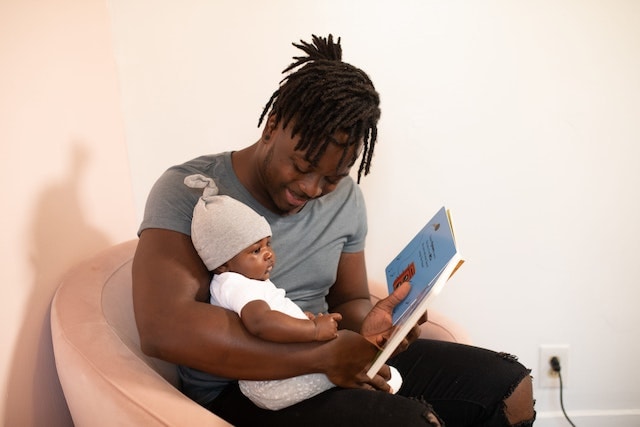Joint Custody: 10 Strategies for Co-Parenting with an Uncooperative Ex
Almost six years ago, when the mother of my children and I divorced, we agreed to joint custody of our two toddlers.
During our marriage, we always were on the same parenting page. We held the same values and philosophies. I couldn’t foresee how that would change after divorce. That is until we started arguing over the details of our child custody agreement and child support arrangements.
I set about creating a map for myself. I researched a lot. A best-case scenario of how things would be once my divorce was finalized:
Hosting birthday parties together;
Sitting together at school and sporting events;
Welcoming a growing extended family.
The goal was to be on the same page to be consistent between our two homes. These are also great and healthy things to facilitate!
However, I didn’t account for my ex. I had assumed that she would want to participate in this optimal arrangement.
Unfortunately, I was wrong.
Shortly after we had amicably ended our marriage, she telephoned me to say that we could no longer have conversations. We would only communicate via text when exchanging relevant information, such as doctor checkups. She would parent our children as she saw fit and didn’t want any input from me.
To think that our kids would grow up in two homes, parented by separate parents with little to no overlap, I was worried. I had fantasized about co-parenting as just a family spread over two houses. Instead, we faced the reality of parallel parenting —two different worlds in which the children were raised with one parent at a time.
Five years ago, my kids had a little bit of difficulty getting used to the divorce. Thankfully, after all these years and with help from their stepparents and other family members, they have adapted quite well. Their worlds have expanded immensely because recently, they learned more about different cultures by having extended families involved in their lives and learning from them.
They are easy-going, flexible, and open-minded. They know how their realities interact with other people’s and that we all see things differently because of where we stand in life. They’ve learned discernment on what works best for them from various alternatives.
They’ve taken the lemons life gave them and made lemonade.
Even if you co-parent with someone who isn’t the best of parents, remember that you can do things at home to save yourself and your children’s stress and improve the situation by giving them their own space in your house.
Here are some of my road-tested tidbits of advice:
#1 Be available. Give yourselves a one-hour ‘hello’ period to sit down, relax and listen to them. They will let you know what is going on with their lives, how school went for them yesterday, or how happy they are to be going out with their friends for a big night on Friday. Let them get used to seeing you often. This will make their transition a lot easier.
Give your kids some space to reconnect to their rhythm and habits at your house. This will allow them to recover from being away from home and get used to living with you again.
#2 Take good care of yourself. Get regular exercise. Spend time with a good friend or therapist who can listen to all your feelings without judgment. Write in a journal. Work through your anger and pain. Eat well. Don’t sacrifice your health or sanity thinking it’s noble or necessary for the kids' good.
Start a regular exercise schedule. Spend some quality time with a friend or therapist who will listen without judgment and help you get things off your chest. Write down your feelings in a journal. Get rid of all that aggression using a punching bag if necessary! Don’t sacrifice your health or sanity only to make the kids happy -these little kids grow up quick, so chances are you won’t have much more time with them before they’re living their lives just like you!
On an airplane, the oxygen mask analogy is a reminder to secure your safety first before helping those around you. In life, this becomes even more essential when you want to be with your children.
#3 Do not judge the other parent when your children can hear it. It may seem inevitable to have feelings about your child’s other parents, but you should ensure that you do not let your judgments come out of your mouth when around your child. This is something you might find hard at first, but if you stay patient, it will be worth it because both of their parents live inside of them no matter if you think about it or not.
Parents need to realize there are several variations to various ‘parenting styles.’ Parents must acknowledge these differences and remain neutral. I have a ‘no comment’ policy on what happens at their other house. I don’t ask them why it’s that way or why their mom said this or did that. This allows the kids the freedom to process their feelings related to a given situation without feeling like they need to defend a family member from being attacked by the opposite parent.
The goal is to teach your child that people are unique, and sometimes two things (and two people) who were once very happy together, whether as friends or lovers, might not fit together that well anymore. They need to understand this, too –no one ever said divorce was pretty, and our job here is to explain it in as honest and gentle a way as possible.
#4 Do not judge your children’s feelings. Just listen. Like most things in your life, learning to listen is one of the skills one cannot be taught. One time the kids were mad at their mom. I followed my ‘no comment’ policy and let them vent. I didn’t judge their feelings or my ex’s. Shortly, the issue passed, and they both felt better. They thanked me for listening and went about their day.
If I didn’t listen or tell them not to feel that way, say they can’t talk about their mom in my house, make excuses for my ex, or join them in blaming her, they wouldn’t have felt safe sharing their emotions. Just listen.
#5 Teach your child to solve their problems. It is not always easy to gather around the table and solve issues as families. Even less so in divorced families with co-parenting. This can be more challenging when parallel-parenting because one parent may not even know what’s going on with the other, which creates communication breakdowns between parents and children.
I’ve taught my children communication strategies and how to deal with problems using techniques that help reduce stress and remove unnecessary pressure between people. We practice this in our home.
I do not intervene in any conflicts they have at their mother’s house. After reflecting on their problems, I encouraged them to speak directly with them. Often, they decide to stay silent.
It’s a good lesson for anyone to learn, but watching my kids go through it is hard. I’ve taught them to ‘own’ their choices, including when at their mother’s house. My job is to stay neutral and be there for my kids. I’ll answer any questions they have, but not with direction. The more I listen, the more they will trust me and communicate with me.
#6 Buy doubles. It took me a long time to figure this one out. Transferring kids between houses, something is always forgotten. Go to Goodwill and get an extra set of snow pants and boots (or swim trunks and goggles). If the good pair is left at their mother’s house, they will have something to wear. Being something they probably don’t like gives them the incentive to bring back the stuff to your house. Problem solved.
#7 Speak with your Ex. Your kids aren’t messengers. If you need to convey something to her, there are many ways (text, vmail, email, a communication folder that travels back and forth with the kids).
#8 Don’t ask them about your ex. Your kids will know you are plying them for the scoop on the other parent, no matter how subtle you think you’re being. And they hate it.
The other important thing to note is that unless you suspect abuse or neglect has taken place, don’t ask for details. Of course, if the children want to tell you something – that’s a different story! But as much as possible, avoid thinking in terms of good/bad parents or start wondering whether they should keep the children or not.
Be considerate of your kids. Don’t expect them to give you information about the weekend when they were with their other family just because you asked. That is too callous and will leave your child confused about their role in this separation. If you want to know, take your own advice –ask your ex directly. Don’t be manipulative –just let it go!
Also, if there’s anything you don’t want your ex to know, don’t let your kids know. It’s not right to ask them to keep secrets from their mom. It puts them in a terrible position, pitting one parent against the other.
#9 Don’t speak for the other parent. Sometimes my kids will ask why they can do one thing at mom’s house and not at dad’s.
It used to be difficult for me not to say too much when I knew more about my ex. Now that years have passed, I don’t know her as much as I did. It’s so much easier now not to speak on her behalf because I no longer know why she does what she does.
It’d be best to let the other parent speak to your child. Don’t interfere. Don’t cover for them. If you must say something, tell the truth. This is how children learn how to forgive -by confronting reality. Avoid using statements like “She is a good person at heart, so being late shouldn’t bother you as much.” Also, point out repeatedly that her not being on time does not mean she loves you less or that her feelings have changed.
#10 Let your kids love both parents without reservation or fear. And any new partners, as well. And free yourself from any judgments that may be causing you to judge the love they have for their stepparent or your ex. If it’s still hard, do whatever internal and emotional work you need so that this isn’t a problem for you or the kids. This might be the most important item on this list.
Love is infinite —it cannot be diminished by sharing it with others. It’s important to let your child know that their love for one parent can never lessen their love for the other. You must remind them that they have a tremendous capacity for love, and if you are confident in them, then so will they be.
That should be enough to give you a good start. Oh, wait, just one more:
Everyone makes errors from time to time. The great thing about these is that you can learn from these mistakes. It’s all a part of the learning experience. So if there happen to be some slip-ups along the way, don’t let them get to you! Just correct it, and move on.
Read more Parenting Tips That Can Work For Anyone
You May Also Like
Single Father by Choice
While many iconic single fathers were thrust into single parenthood …
How Fatherhood Contributes To Fitness And Healthy Living
When it comes to fitness and personal hygiene, most men generally …
Parenting Tips That Can Work For Anyone
Parenting a child is the rearing of that child. It takes on the …






